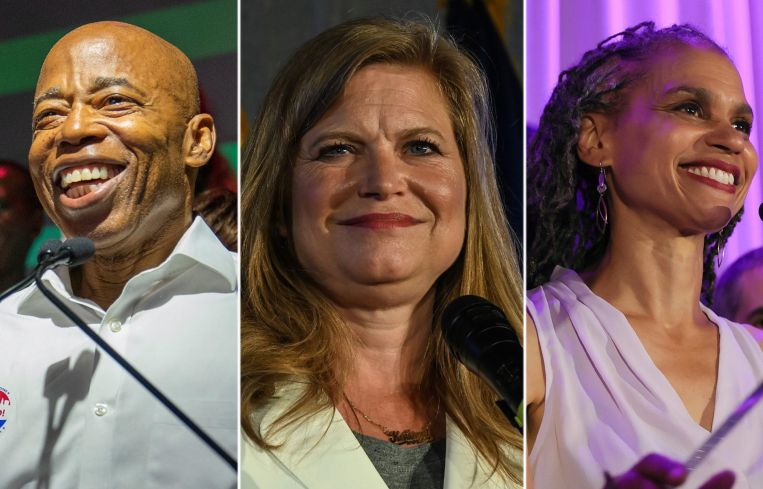Real Estate’s Odds in NYC Mayor’s Race Just Got Better
Of the three likeliest winners, two — Eric Adams and Kathryn Garcia — have signaled they’re pro-development; Maya Wiley not so much
By Rebecca Baird-Remba June 23, 2021 4:09 pm
reprints
New York City voted in its first ranked-choice mayoral primary Tuesday, and Brooklyn Borough President Eric Adams has a significant lead in the first round of voting, followed by Maya Wiley and Kathryn Garcia.
But, given the New York City Board of Elections’ notoriously slow ballot counting and the need to re-tabulate multiple rounds of votes for a ranked-choice election, New Yorkers may not know who the Democratic mayoral candidate is until at least early July.
Regardless of how the race shakes out, Adams is certainly the most real estate industry-friendly of the front-runners. Between 2015 and 2019, Adams’ nonprofits and campaigns took in $332,750 from developers and lobbyists seeking rezonings or land use changes in Brooklyn, The City reported in April.
As borough president, he had an advisory role in the land use process and could issue recommendations that would shape the final outcome of rezonings and individual projects. Since taking office in January 2014, he approved 86 percent of land use applications that came across his desk, City Limits found.
From a policy perspective, Adams told Commercial Observer that he supported upzoning a large swath of Midtown South, roughly from 14th to 42nd streets between Ninth and Park avenues, “to add new density that will yield affordable apartments.” He also supports reforming the city’s property tax system, legalizing basement apartments and accessory dwelling units, and building micro-units and single-room occupancy apartments (SROs).
Garcia’s stances are similarly pro-development and pro-growth, though through her previous positions in city government — including a six-year run as sanitation commissioner — she does not have Adams’ track record of application approvals and campaign donations.
Her real estate and housing pitch includes cutting red tape for development and zoning approvals from the city Buildings Department, eliminating single-family zoning, building new SRO units, and legalizing basement apartments. Garcia also supports the SoHo/NoHo and Gowanus, Brooklyn, rezonings; reforming the city’s property tax system; and building more supportive housing.
Wiley’s stances on such policy issues, on the other hand, aren’t as clear. When she spoke to Commercial Observer this spring, she focused on building more affordable housing for New Yorkers making less than $30,000 a year, setting aside $2 billion in city funding to rehabilitate the New York City Housing Authority, and increasing housing voucher subsidies for homeless New Yorkers.
Meanwhile, two other mayoral candidates thought to be especially amenable toward real estate interests — business executive Ray McGuire and tech entrepreneur Andrew Yang — both fared poorly in Tuesday’s voting; Yang so much so that he dropped out of the race that evening. And most of the dozens of City Council races that will decide just how far to the left the chamber might swing had yet to be called as of Wednesday afternoon.



